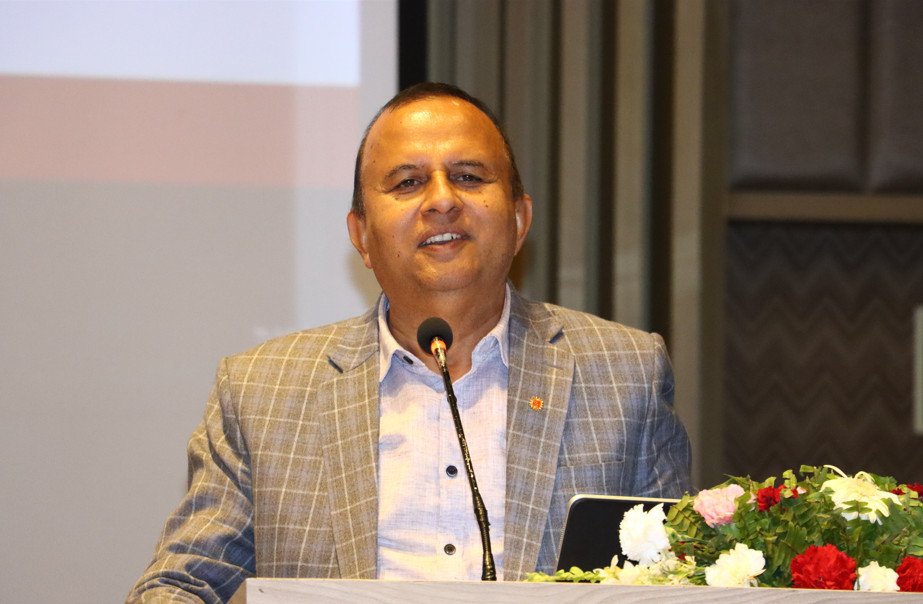

KATHMANDU: CPN-UML General Secretary Shankar Pokharel has indirectly criticized Maoist Centre Chair Pushpa Kamal Dahal ‘Prachanda’ for monopolizing his party’s leadership for decades, while showcasing the relatively dynamic leadership changes in the Nepali Congress and CPN-UML.
In a Facebook post that appears politically loaded, Pokharel listed the sequence of top leaders in Nepal’s three major parties since the restoration of multi-party democracy.
His message highlights what he sees as a healthy tradition of leadership renewal in the UML and Congress—while subtly portraying the Maoist Centre as stagnant under one man’s grip.
“Following the establishment of the multiparty system, here is the state of leadership development in the major parties,” Pokharel wrote.
He then outlined UML’s leadership succession—from Madan Bhandari to Manmohan Adhikari, Madhav Kumar Nepal, Jhala Nath Khanal, and KP Sharma Oli.
He similarly listed Krishna Prasad Bhattarai, Girija Prasad Koirala, Sushil Koirala, and Sher Bahadur Deuba as the key leaders of the Nepali Congress over the years.
For the Maoist Centre, only one name appears: Pushpa Kamal Dahal ‘Prachanda’, signaling his uninterrupted control of the party since the days of the armed insurgency.
The post, though framed as a neutral reflection, is widely seen as a pointed critique of Prachanda’s decades-long domination of his party.
It comes at a time when the Maoist Centre now leads the opposition benches, while the UML and Nepali Congress have joined forces in government, with KP Sharma Oli currently serving as Prime Minister.
Prachanda, who once led a decade-long insurgency and later became prime minister multiple times, has remained the unchallenged leader of the Maoist party through its various rebrandings and political transformations.
Political analysts say Pokharel’s post is part of a broader effort by the UML to contrast its internal democratic credentials with that of its former ally-turned-opposition rival.